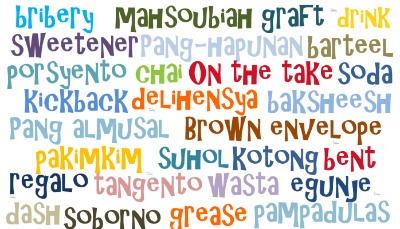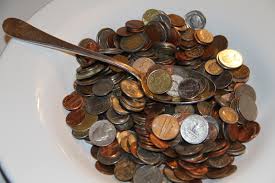Bribery and corrupt practices tend to be hard to identify, and when foreign languages are thrown into the mix they can be even more difficult to observe and report. As rules for international regulatory compliance become more demanding, the need to understand the language of bribery and words related to corruption, such as ”Black Mist Under the Table” is more important than ever. But what happens if your evidence of corruption is hidden in foreign slang…
”Black Mist Under the Table” | The Culture of Euphemisms and Bribery
The language of euphemisms became an essential part of our everyday communications long ago. Used for various reasons, euphemisms make us appear: polite, witty, crude, imaginative and well-rounded (itself being a clever euphemism for people who take great pleasure in eating). However the reason people use euphemisms is not always so innocent. In some cases the role reserved for euphemisms is that of a secretive or semi-secretive language of illegal transactions. Very common, as well as widely diverse, is the language of bribery. In English we use various phrases and words related to corruption: “a pay-off”, kickback, payola, sweetener, palm oil and “to grease the wheels” to name a few. As the occurrence of bribery is worldwide, and the usage of euphemisms is typical for all languages, some striking similarities of linguistic imagery can be found with these corrupt “slang terms” across languages and cultures. While entertaining to learn about, being familiar with international corruption phrases, and even words related to corruption in your native language, is extremely important for any company going under review for compliance.
”Black Mist Under the Table” | Are you aware of any International Corruption Phrases?
“A Small Thing”
In many languages a bribe can be described as a small or insignificant object. The Swahili expression kitu kidogo literally means “a small thing”. In Greek you call it fakelaki, which means “a little envelope”, while in Egypt a traffic officer might ask you for ashaan ad-dukhaan– “something to get cigarettes with ”. Giving a bribe in Italian is often called spintarella, which translates as “giving a little push”.
In some cases a customary nominal gift can be expanded, becoming a full on bribe. The Chinese tradition of giving each other red envelopes with insignificant amounts of money on holidays-hong bao -easily becomes a pretext for a larger bribe. There is a similar custom called ttokkap or “rice cake expenses” in South Korea which includes giving envelopes as well.
“Little Carp and Cash for Soup”
Another category of euphemisms for bribes and international corruption refer to food and beverages. These imply the commonality, wide acceptance or even, in some cases, the essential nature of a bribe. The most widespread are referrals to tea and coffee due to their true international importance. In Afghanistan and Iran the expression for a bribe is poul-e-chai, meaning “money for tea”. Same is in China, where an official can ask you for “tea-money” or chaqian. A notorious Egyptian traffic officer might request your help paying for his tea, ashaan ash-shay, along with his earlier requested cigarettes. Simple tea would not suffice a Syrian official, who would prefer finjaan ‘ahwa– “a cup of coffee”, while his Brazilian colleague would ask for um cafezinho– a smaller version of the same beverage.
Corruption can be nerve-wracking, and some may turn to slightly stronger beverages than tea or coffee to ease their conscious. Anything from pot-de-vin, a glass of wine, in France to soju, Korean whisky, can be requested. In Turkey, its more common to give chorba parasi or “cash for soup”- which is traditionally eaten at the end of a night of heavy drinking. Even more exotic is the Czech euphemism for a bribe – kaprzhici, meaning a “little carp”. Czech “fishy business” even identified the price of each “little carp” to be fifty U.S. dollars.
“Black Mist Under the Table”
The dark, shady, and inconspicuous nature of corruption is often exploited to highlight the impossibility for a third party to discover the transaction. Probably the most poetic euphemism for corruption comes from Japan: kuroi kiri or “the black mist”. Almost as enticing as kuroi kiri is the Korean expression noemul, meaning “giving goods in secret”. Du don, meaning “back money”, and gun eun don,“black money”, are other Korean metaphors referring to the shadiness of bribery. “Under the table” became a truly inter-lingual phrase to describe an alternative way of doing business. It exists in English, French (dessous de table), Swedish (pengar under bordet) and Farsi (zir-e mize). Referrals to the hand giving and/or receiving money are also quite common – from the American Backhander to the Russian dat’ na lapu, which translates to “give something on the paw”.
The Russian language and culture contains a few more ambiguous phrases that conceal acts of bribery: dogovorit’sia or “come to the agreement”, pomoch’ drug drugu, meaning “help each other out” and ponimat’ drug druga,“to understand each other”, are just several phrases with the well-known meaning. Meanwhile the Chinese refer to zou hou mie, “the backdoor” apparently leading to an easier solution…
“Grease the Wheels”
In some countries there is such a thing as facilitating payments to speed up the formalization of documents. However, corrupt officials can use this pretext to get their piece of the bribery cake. There is a wonderful expression in English “the palm oil”, which has a rough Hungarian equivalent “the oil money” or kenopenz. There is also a Russian phrase podmazat’ which means to oil something under. These certainly seem to imply the continuous, non- stopping nature of bribery.
Corruption exists in all countries on multiple levels. However it is unfair and certainly wrong. If you face it during business abroad, you should identify it immediately despite the oblique language or ambiguous terms that are being presented, and act to avoid it. Beyond ethical reasons, this should be done in order to comply with certain regulations – including the U.S’ Foreign Corrupt Practices Act (FCPA).
Slang and Document Filtering
Knowledge of the aforementioned international corruption terms and euphemisms for corrupt practices comes especially useful during multilingual FCPA investigations and regulatory compliance cases involving foreign language document review. Part of the overall process for compliance and FCPA translation services includes Document Filtering. Document Filtering, often a part of eDiscovery translations, is when keywords (in this case the slang words related to corruption practices and bribes) are used as markers in the machine-controlled processing of electronic documents with the purpose of finding information relevant to the compliance or FCPA investigation.
Language Connections uses Document Filtering Techniques in the first of our four- step approach to provide the most efficient, high-quality FCPA translation and regulatory compliance related documents. Foreign language slang doesn’t get past our translators – don’t let it slip through the cracks, and into the black mist, of your compliance review.
About Language Connections:
Language Connections is one of the top language service companies in the US. Over the last 30 years, we’ve focused on providing the best business translation services, interpreting services, as well as interpreter training and customized language training programs. In addition to top-tier corporate language training, we offer certified corporate interpreters and professional business translation services in 200+ languages. Our network includes linguists with backgrounds in all major industries. They’re ready to meet your needs, whether they’re for technical translation services, legal translation, government translation services, international development translation services, education translation services, life sciences translation, or something else. Reach out to us today for a free quote on our cost-efficient and timely translation services, interpreters, or other linguistic services.
Language Connections Inc.
2001 Beacon Street, Suite 105,
Boston, MA 02135
Phone: +1-617-731-3510
Email: service@languageconnections.com






